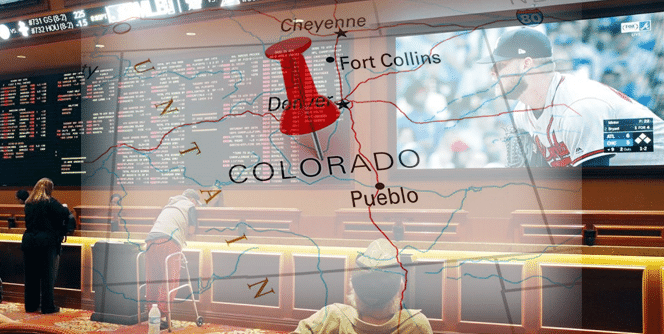Back in May, a bill focused on sports betting was approved by the state of Colorado. However, Colorado’s law, the Taxpayer’s Bill of Rights (TABOR) indicates that any changes related to taxes must receive approval by a vote of the public. Because any revenue from sports betting would be taxed, this makes it necessary for the people of Colorado to decide whether or not sports betting can be legalized in the first place.
Now November 4th, the time for voting is just a day away. Tomorrow voters will ultimately get to decide the fate of legal sports betting in Colorado. The bill up for vote is Proposition DD. The language of this bill would impose a 10% tax rate on all revenue generated from sports betting. With a 10% tax rate, the state estimates that they will receive roughly $10 million in tax earnings annually. This assumes that there will be about $1.5 billion in total bets placed during the year.
Betting in any capacity is already fairly limited within the state. There are only three towns that are allowed to have a casino and none of them are conveniently placed near highly populated cities. Even if sports betting is legalized, placing a sports wager at a physical casino would still be tough for most Colorado residents.
One important thing to note is that the language of Proposition DD does permit mobile sports betting. In states where mobile sports betting is currently legalized, most wagers are in fact placed through an online platform. Even better, Coloradans won’t need to register in person at an actual casino before making an online/mobile sports bet. With the 33 casinos within the state inconveniently placed, this would make sports betting much for accessible for state residents.
Looking further into the bill, betting on collegiate events would be allowed, but proposition bets are not. Betting on esports events and any high school events is banned entirely.
There’s a good chance that the bill will pass considering that almost ⅔ of tax earnings from legal sports betting would go towards helping the public. 65.9% of tax revenue would be allocated for water projects in the state via the Water Implementation Cash Fund. Opinion polls have also shown that many voters are in favor of the bill.
One thing that may stand in the way of the bill receiving approval is how it is worded. The bill’s language is posed by initially asking if state taxes should be increased. This may deter many voters from voting yes if they do not choose to fully read the question.
At the very end of the proposition, it states that the tax would be imposed on “persons licensed to conduct sports betting”. Even if voters do fully read the question, they still might struggle to understand that it won’t be residents that need to foot the bill. Many U.S. citizens are opposed to tax increases period, so this may hurt the chances of sports betting being legalized.
Assuming sports betting does become legal in Colorado, there won’t likely be a way to place a bet until next year. Based off revenue projections, May of 2020 is a likely date for sports betting to begin in the state.




